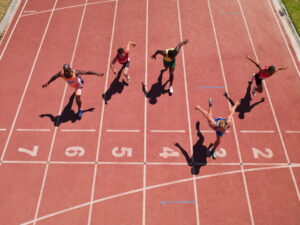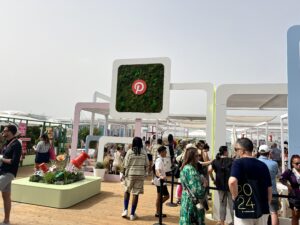Here’s how to use AI art services DALL-E, Craiyon and Dream
Step-by-step instructions for creating your own AI art for commercial use.
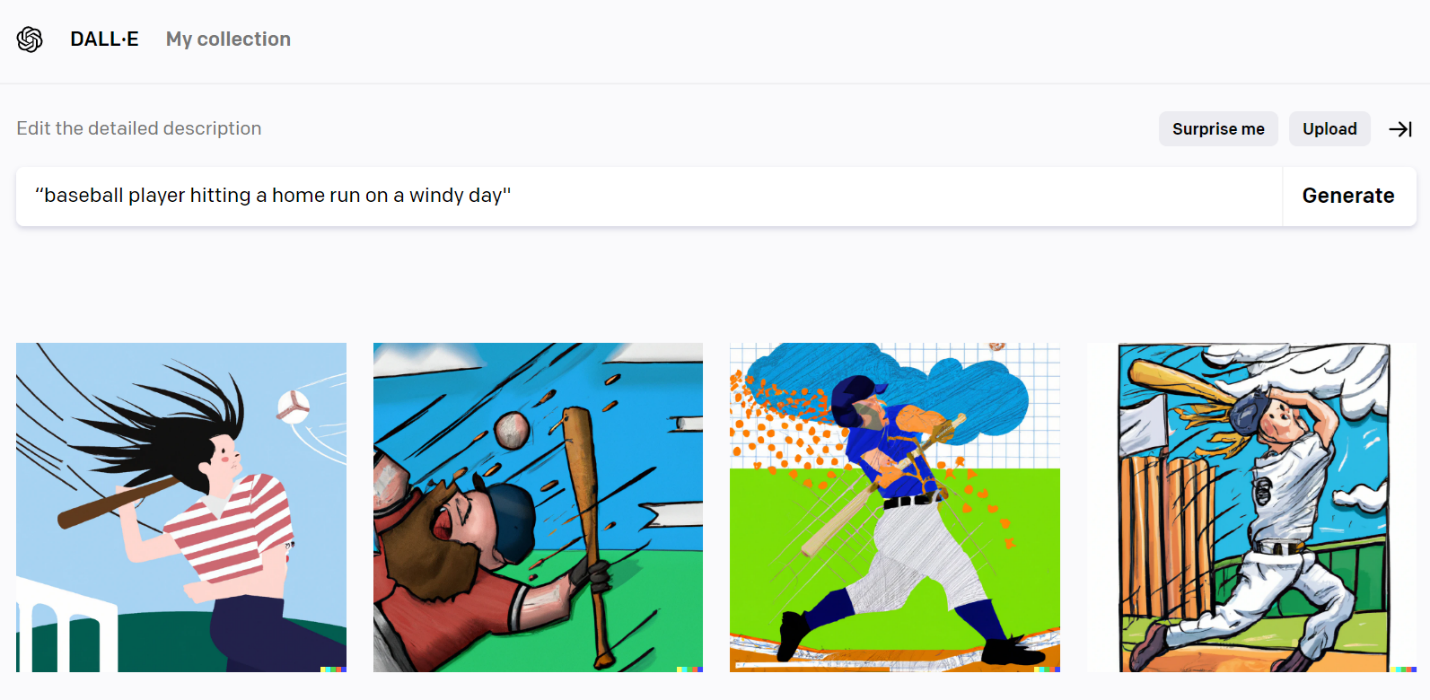
Imagine telling someone 20 years ago that you could type a random phrase on the Internet and an automated image matching that description will be created for you.
It sounded crazy then, but that time has come in 2022.
Text-to-image AI can help communications professionals find more options for art with campaigns, social media, you name it.
The increased use of AI in art and marketing is taking some getting used to.
In September, artwork made by AI won first place in the fine arts competition at the Colorado State Fair, which sparked controversy.
The digital art category at the Fine Arts competition has people talking! At the Colorado State Fair, we think this brings up a great conversation. With advancing technology, the discussion of AI and art helps the Fair evolve from year to year.https://t.co/QouAArB4EI pic.twitter.com/kzLrnCwbvs
— Colorado State Fair (@colostatefair) September 1, 2022
Fair representatives there allowed the AI art piece to win but said they would review the rules for next year’s contest.
[RELATED: Enter our Workplace Wellness Award by Nov. 4 to showcase your HR, wellness & comms initiatives.]
With AI art poised to change the way we view images, the time to start experimenting is now.
Here’s how to use three of the popular text-to-picture services DALL-E 2, Craiyon and Dream.
What is DALL-E 2 ?
Cost: DALL-E uses a credit system. One credit is used when each image is generated or edited. Users get 50 free credits during their first month, and 15 free credits every month after that. After that, credits are $15 for a pack of 115.
Licensing: Images must be attributed to Dall-E 2 and there is no cost to publishing images, including for commercial use
Who made it?: The program was developed by Open AI.
How to use DALL-E 2
DALL-E 2 opens with a clean interface that asks users to write a detailed description, be surprised with a random photo or upload an image to edit.
I have been thinking about the baseball playoffs this week, so I tried “baseball player hitting a home run on a windy day.”
Here were my results.
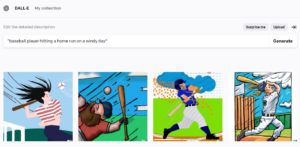
I picked the first one and received options to edit, see different versions to the same photo, and add it to your favorites list. You can also download it or report if the image is offensive.
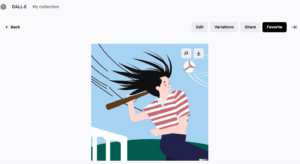
Here are the variations the DALL-E provided for the photo.
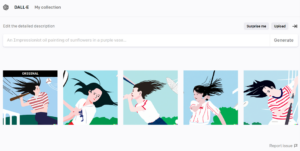
You can also upload images on DALL-E.
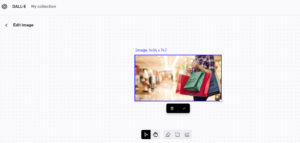
I uploaded an image of a woman shopping and discovered basic editing options to pan, erase and add a generation frame.
DALL-E 2 has been a success for Open AI, which reported that more than 1.5 million users were actively creating over 2 million images a day with the service in September.
Brands like Stitch Fix, Nestlé and Heinz have used DALL-E 2 for ad campaigns and other commercial use cases, while architectural firms have used DALL-E 2 and similar tools to conceptualize new buildings.
What is Craiyon?
Costs: There is no cost to use Craiyon.
Licensing: Images must be attributed to Craiyon. The company said images can be used for personal use for free and images can’t be resold. Photos can be used for free commercially by companies with less than $1 million in annual revenue and as long as they are not being used for NFT purposes. Paid commercial information use for companies with annual revenue over $1 million can also found by emailing sales@craiyon.com.
Who made it?: The program was developed by Boris Dayma.
How to use Craiyon?
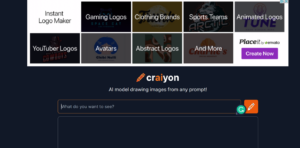
Craiyon is free and ad supported.
This is what the service returned when using the same search.
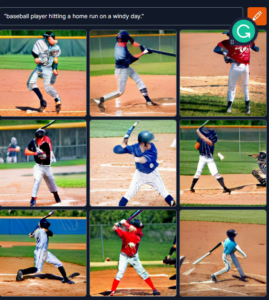
I was given the option to download a screenshot I chose. There were no additional options to edit the photo.
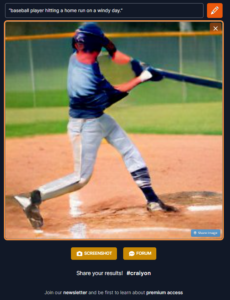
Some brands have started creative campaigns with the service. For example, producers with the horror film “Smile” worked with Craiyon to make a way you can share your “smile” on the movie poster.
What is Dream?
Cost: There is no cost to use Dream.
Licensing: Images must be attributed to Dream and there is no cost to publishing images.
Who made it?: The program was developed by Wombo .
How to use Dream?
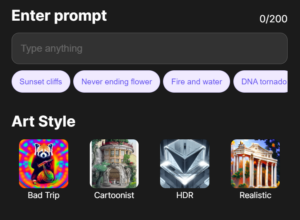
Dream offers a clean interface with several art styles.
After searching for “baseball player hitting a home run on a windy day.” here were the results:
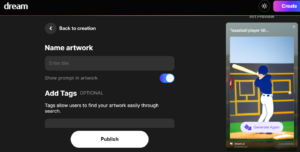
The service allows users to download and share the artwork on social media. Users can also buy prints of photos they create on the download screen.
Chris Pugh is a staff writer for PR Daily. Follow him on Twitter and LinkedIn. Send story ideas to ChrisP@Ragan.com.
COMMENT
PR Daily News Feed
RECOMMENDED READING
The changing role of comms: The view from Cannes
When PR stunts go wrong — or very right
Tags: Craiyon, Dall-E 2, Dream, text-to-picture


